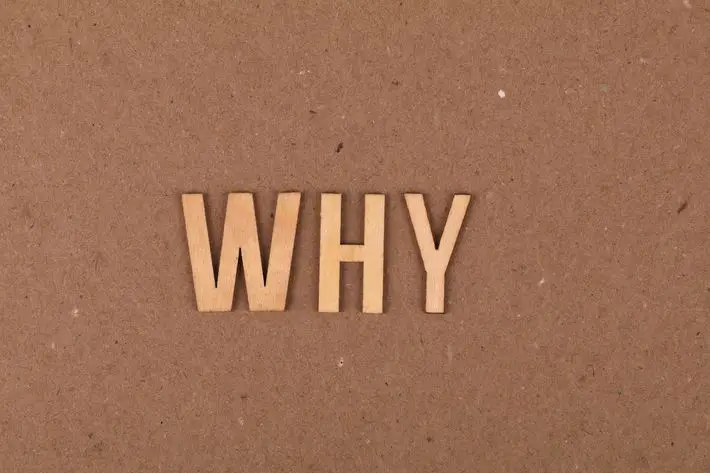Improving Consistency and Self-Discipline: 5 Actionable Tips
To achieve our goals, we need to do things repeatedly.
- Practicing day after day to maintain and improve our professional skills and physical shape.
- Repeatedly saying “no” to people who ask for more than we can – or are willing – to give at the moment.
- Constantly fighting destructive behaviors and habits.
Success isn’t a one-time feat, it’s compounded from small building blocks. And the foundation for life success is consistency.
Key principles of consistency and self-discipline:
- Keep your goals in mind and analyze your “why”.
- Set measurable goals and focus on small wins.
- Pick a pace you could sustain for months.
- Allow yourself to slip and make mistakes.
- Set up the environment to stay focused
We’ll talk about those principles in more detail and discuss scheduling, rewards, and other things that have positive and negative effects on consistency and productivity.


photo by @karolina-grabowska on Pexels
What is consistency, and how to be more consistent in life?
What consistency is:
You made a decision to do X, and three weeks from now, you do it regularly.
Contrasted to what consistency is not:
Two weeks after deciding to do X, you realize that you did it a couple of times in a row, then once a few days after that, and you can’t quite recall when you did X last. About 10 days ago, maybe?
1. Keep your goals in mind and analyze your “why”.
Success is based on the mindset. You need to lay out a good foundation and have a clear understanding of why you’re doing what you’re doing.
This will become especially important when you inevitably get tired, distracted, or stressed.
Having a clear beacon, a reason to move forward will help you power through the tough moments.
Some driving forces that could help you stay on track:
- What do you want to get?
- Who do you want to be?
- What vision are you aiming to implement?
Try visualizing it in detail. If you have an illustration of your vision, it might be inspiring to look at it from time to time. But the reality will certainly be different, so don’t get too attached to visuals.
Start with “why”, and keep it in mind.


photo by @ann-h on Pexels
2. Set measurable goals and focus on small wins.
“Improving consistency” is a vague goal, and moving towards vague goals, especially those that involve changing habits, is a daunting task.
How do you know you made any progress?
Of course, eventually, the improvements will become obvious. But if you don’t see any tangible results in the first weeks or months, it’s easier to steer off track and give up.
Measurable goals will help with maintaining focus and inspiration.
Examples of small goals you can measure
- Doing a set of exercises 4 days a week
- Learning 30 new words of a foreign language in a week
- Reading 2 books in 2 weeks and writing an essay for each one
- Going to bed no later than 10 PM three times a week
- Spending no more than 1 hour on social media per day, 4 days a week
Doing any of the above for 3-4 iterations will be a milestone and a win.
Goals need to be something in your control. Usually, this means your own actions. Don’t tie your measurable goals to your emotions or actions of other people.
Instead of “Feel grateful for the things that are going well today”, say: “Note the things I could be grateful for”.
A plan set and iterate through measurable goals
- Decide what you want to focus on for the next 2-4 weeks
- Monitor the progress and make notes: What helped you when you did it successfully? What interfered when you couldn’t do it?
- At the end of the 2-4 weeks, think about what adjustments you could make to replicate the wins and remove the impediments. Commit to implementing some of these adjustments in the next 2-4 weeks.
At each step, it sometimes feels like there’s barely any progress. But when you look back and see the ground you’ve gained and the milestones you’ve reached, you see how far you’ve actually come. Small things add up.

3. Pick a pace you could sustain for months
Consistency is a long game.
When you’re excited to gain those first wins, it’s tempting to jump right into it and get the results quickly.
And you’ll most likely get them initially. But if you pick a pace you can’t consistently sustain, this will probably lead to burnout.
You might need to build up some muscle first.
As you practice your habits day after day, week after week, it will be easier to do more complex things more often.
Training self-discipline and achieving long-term goals
Measurable goals will help with alleviating the anxiety of “not doing enough today”.
Zoom out and think how much you’re planning to accomplish in a month? In a year? In three years?
If you have a great start but can’t keep the pace for more than a couple of months, the net result will be way less than if you were to go at a slower pace for a year.
If you have the energy and the enthusiasm, by all means, go for it. But be mentally prepared to dial down and get into a more sustainable rhythm if your situation calls for it.
4. Allow yourself to slip and make mistakes
As the old saying goes, a sure way of avoiding mistakes is doing nothing.
Your road to good habits and consistency won’t be smooth sailing. And even when you get really good at something, there will be moments that would leave you dazed, wondering how you could allow such a silly screw-up to happen.
Mistakes are inevitable. How you deal with them is crucial.
Negative thinking when it comes to mistakes:
- I can’t get anything done
- This is too hard, it’s not for me
- I’m not cut for this
- I keep slipping, so why even bother?
What a person with a growth mindset would think:
- Nobody was born a professional
- Mistakes are an opportunity to learn
- Failing in a specific situation doesn’t make you a failure as a person
- Feedback, both positive and negative, is important for growth
I made a mistake and failed once, or a few times. But if I give up, I'll fail completely.
That’s why I recommend having measurable goals for a few days a week – even if you won’t make it one day, you could still do it on some other days and meet the quota you set for yourself.
Related: Tips to developing a growth and Agile mindset.


photo by @shvetsa on Pexels
5. Set up the environment to stay focused
In their book, Switch: How to Change Things When Change Is Hard, the authors give examples of how people’s behaviors change depending on the options they have readily available.
In one of the first cases they discuss, people are given buckets of stale, untasty popcorn of different sizes. People who had bigger buckets ate noticeably more than people with smaller buckets before calling it quits.
The buckets were given randomly, so there were no specific personality differences. Nobody has yet developed a habit of eating stale popcorn.
The only difference was the bucket size. With a smaller bucket, it’s easier to be mindful of how much you ate and realize that you should put a stop to the experience.
All other things being equal, some roads are easier to take than others.
Making your environment more friendly to focusing on your goals and making it easier to take the right action will help with improving consistency as well.
Don’t try to make your surroundings sterile. People in your household shouldn’t be tiptoeing around you, afraid to make a noise and break your fragile concentration.
But remove the obvious temptations and distractions and make it convenient to access and use things that you need for accomplishing your goals.
Some tips for creating a focused and productive environment
- Declutter your desk.
- Turn off all but the most important popup notifications on your phone.
- Turn off the sound and vibration for all phone notifications.
- Set boundaries with people in your household.
- If some level of noise is inevitable and it keeps breaking your concentration, invest in noise-canceling headphones.
How to maintain a productive environment
Setting up your environment is one thing, but maintaining it requires consistency in and of itself.
It might seem like a catch-22. Do you need consistency to create consistency? Is there yet another thing to worry about, on top of all the other things you keep in mind?
Or, it can be viewed as an extra venue for practicing consistency, control over your immediate surroundings, and self-control.


photo by @ivan-samkov on Pexels
Why is it hard to be consistent?
We gravitate towards things that give the most gratification with the least effort.
That sounds logical. Don’t we want things with the highest success coefficient?
The issue arises when we want things that require a lot of compound effort to bring results. In those cases, going for instant gratification does us a disservice.
A chocolate bar brings pleasure right now, but it will take dozens of workout sessions to bring visible results. Not to mention the health benefits years down the line – they seem all too abstract.
Keeping a focus on the bigger picture isn’t easy when there are so many pleasant – or at least familiar – things you could be doing instead.
Consistency means doing things even when you don’t feel like it.
Which is, admittedly, hard.
However, if you constantly find yourself hating what you’re doing, you should review your priorities, methods, and the factors that influence your mental state. Don’t just try to power through the pain.
Things that help to build and practice self-discipline
A few more specific, short-but-aren’t-as-easy-to-implement things that would help with developing good habits, consistency, and self-discipline:
- Have healthy sleep
- Try to challenge yourself
- Work on your mindset
- Find an accountability partner
Each of those topics deserves its own deep dive, and I linked some of my articles on those subjects that you’re welcome to check out.
Here, I’ll focus on a couple of tools that could be amplifiers for your consistency: schedule and rewards.
Related: Tools and skills that greatly increase the chances of success: what are yours?
Does a schedule help with becoming consistent?
Stop for a second and think of what a “schedule” is.
I almost bet the image that came to your mind had the list of activities timestamped. However, while a schedule is a time-management tool, it doesn’t need to have a specific time attached to its events – they could just be in chronological order.
When a time-based schedule helps with consistency and productivity
Having a schedule with clear times attached to most of the activities could be beneficial in cases like:
- You regularly have activities that take place at a certain time, and you have to plan your day around them.
- When you feel like that having a more rigid structure of the day pre-planned takes out the guesswork of what to do next and keeps you focused.
- If there are things that you need to do but don’t feel like it, setting aside a specific designated time will make you face and deal with those activities. It leaves less room for excuses.
- When you look back at most of your days, you’re not sure where the time went. A time-based schedule will bring more clarity.
There are also cases when a timestamped list of activities won’t make much sense:
- When the time an activity might take has a lot of variation, like creative work, or having to do something without much prior experience.
- You have a factor that could suddenly disrupt how you spend your time (for example, you have a child or someone in your care).
Actually, reducing variation in the time it takes to accomplish a task, getting better with time estimation, and devising ways to minimize the effects of external influence will also help with your consistency and productivity.
But maybe you just don’t like keeping an eye on the clock all the time.


photo by @anete-lusina on Pexels
Sequential schedule: good for building routines
This type of schedule just sets the order of the events, without assigning specific start and end times.
You get the benefits of knowing exactly what to do next while keeping the flexibility of when you start the sequence and how long each step would take.
It’s good for developing sequential habits, like the morning wake-up and the evening wind-down routines.
It also works with varying day-to-day tasks. Knowing the key steps you plan to take today helps with managing time accordingly.
Should I use rewards to develop self-discipline?
Rewarding a behavior makes it stick, doesn’t it?
For us humans, the very process, the realization that we’re moving towards our goals should be rewarding by itself. Those small measurable milestones we hit are a treat.
Of course, you’re not doing it for some extra rewards. But you had to exert all that willpower to reach your goals, so it would be nice to treat yourself once in a while. What’s the best way to do it?
Whatever you do, watch out for having a reward that is ironic in the context of what you’re doing, like:
- Having a huge slice of cake after managing to stay on a healthy diet for two weeks straight.
- Managing your time and being productive for a week and rewarding yourself with binging two seasons of a show over the weekend.
- Watching your finances for a month and celebrating with a shopping spree.
In my opinion, the best treat is something that is also good for your personal or professional development but isn’t a priority for your current goals.
For example, you could invest some of your precious time into practicing a musical instrument, learning a foreign language, or solving a jigsaw puzzle. All of these are good for the brain.
There are also many courses that would help you pick up a hobby or a skill.